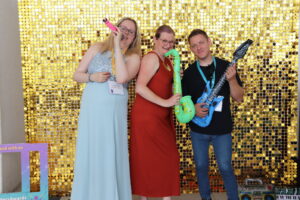Report shows success of NHS Foundation Trust’s pioneering integration of Rio electronic patient record (EPR) and Elemental social prescribing software, with benefits for staff and patients.
All sorts of things that affect our health aren’t simply medical matters that can be treated by doctors or with medicine. Debt, loneliness and stress caused by poor housing or financial pressures all require non-medical support. Doctors, GPs and those in charities and other organisations can help those in need to access this kind of support through what’s called ‘social prescribing’.
Photo by J WNearly one-fifth of GP appointment times are taken up with these kind of non-medical issues, according to the Social Prescribing Academy. Recognising the scale of the problem being faced and the potential benefits of this kind of support, the Health and Social Care Select Committee recently called for a national social prescribing strategy.
Mersey Care NHS Foundation Trust is already ahead in this area. The trust, which serves some 1.4m people in the North West, has used the Rio EDR system since 2015 and Elemental social prescribing software since 2016. Both systems are supplied by Access Health Support and Care (HSC), which then worked with the trust to implement an integrated version, which went live in 2022.
That enabled more than 700 mental health professionals across the Merseyside region to use the Rio EPR system they already used every day to refer patients to social prescribing services provided by the Life Rooms. The fact this is all done through a single system provides staff with a more holistic view of an individual’s care.
Now an evaluation of the first 12 months of using the integrated system quantifies its success. The report shows that the integrated system has cut the time taken to meet an individual’s social needs from 27 minutes down to just 8, per appointment. That in turn cuts down waiting times as a whole and means that clinicians are able to see more patients in a day.
One clinician cited in the report went even further: ‘Usually if I needed to refer a patient, I would need to complete a referral form, which is time consuming. Using the Elemental tab has shortened my referral time by around 1 hour [per patient].’
Some 97.2% of clinicians surveyed were confident that they met the social needs of service users through the integrated system and 94.4% recommended The Life Rooms service to colleagues. At the moment, 28 clinical teams at the trust use the social prescribing system, 15 of them undertaking active referrals.
Since the integrated system went live in September 2022, clinical teams have referred 1,396 individuals to the Life Rooms and there have been more than 2,000 social prescriptions.
Data collected by the integrated system also enables staff at the trust to better understand the main social factors that impact people’s well-being. This in turn means services can be better tailored to meet needs.
Given all this, the integrated system is now being extended to social prescribing teams across Liverpool and Sefton, as well as to other NHS trusts.
Jardine Barrington-Cook, Head of Interoperability at Access HSC, says: ‘The interoperability of these two systems leading systems in their fields has been a key driver of the success at the trust, as highlighted in the findings of the report. We are delighted that by working together, we have been able to transform the way services are delivered, improving individual’s outcomes. We look forward to seeing how this partnership continues to support the delivery of more person-centred care across the region.’
Michael Crilly, Director of Social Health and Community Inclusion at Mersey Care NHS Foundation Trust, says: ‘By looking at the data available within the integrated system, teams can also closely map the social circumstances that are leading to individuals presenting in crisis and tackle these at the root source. This can help us to deliver proactive support before health issues deteriorate further, rather than working on a more reactionary model of care.’
In related news:
Independent living: Radis Community Care helped three siblings fly the nest


















Leave a Reply